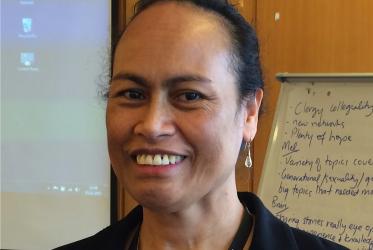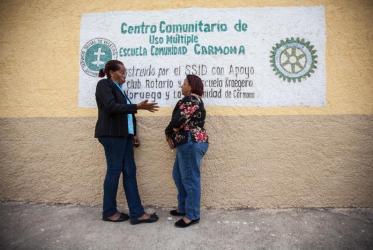Displaying 121 - 140 of 153
"I hit the ground running": Katalina Tahaafe-Williams
16 February 2016
Symposium focuses on religion, violence, extremism
04 February 2016
Church challenge: Welcoming "strangers" in a climate of fear
18 November 2015
L’Église au défi: Accueillir des «étrangers» dans un climat de peur
18 November 2015
North American conference convenes to “Reclaim Evangelism!”
11 November 2015
Faith communities urge U.S. to resettle more Syrian refugees
14 September 2015
Reclaiming our humanity
23 June 2015
Il faut reprendre possession de notre humanité
23 June 2015
WCC condemns mass killing in Charleston
18 June 2015
Church leaders address statelessness in Dominican Republic
03 February 2015








